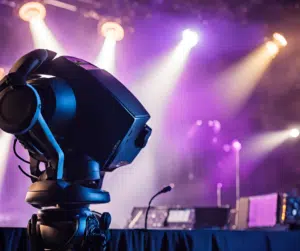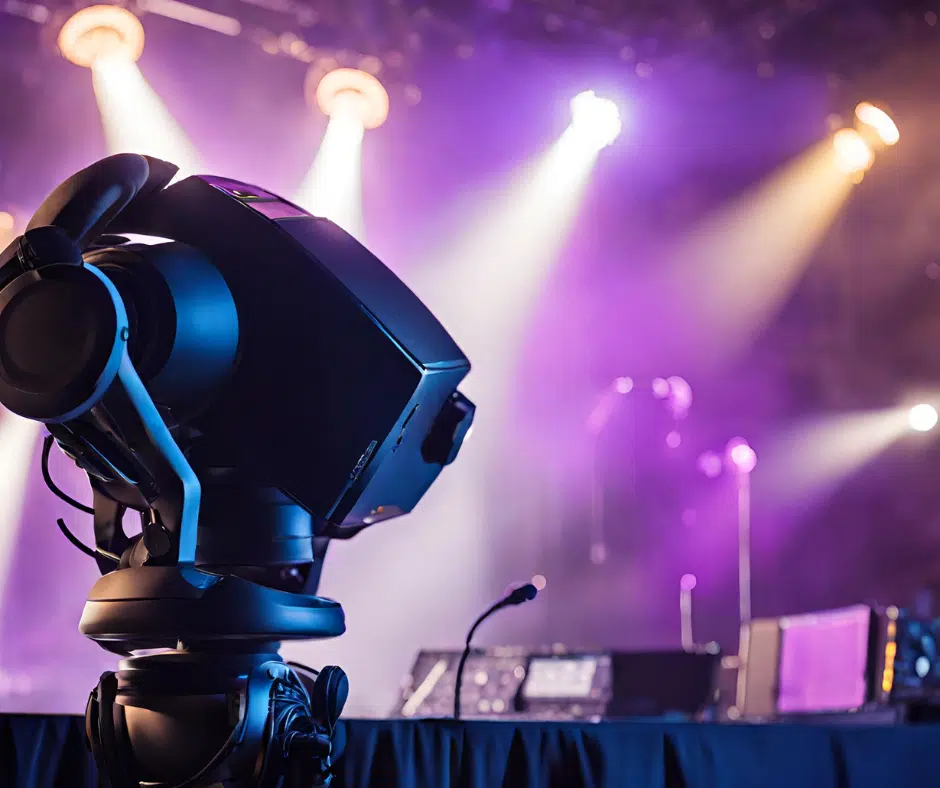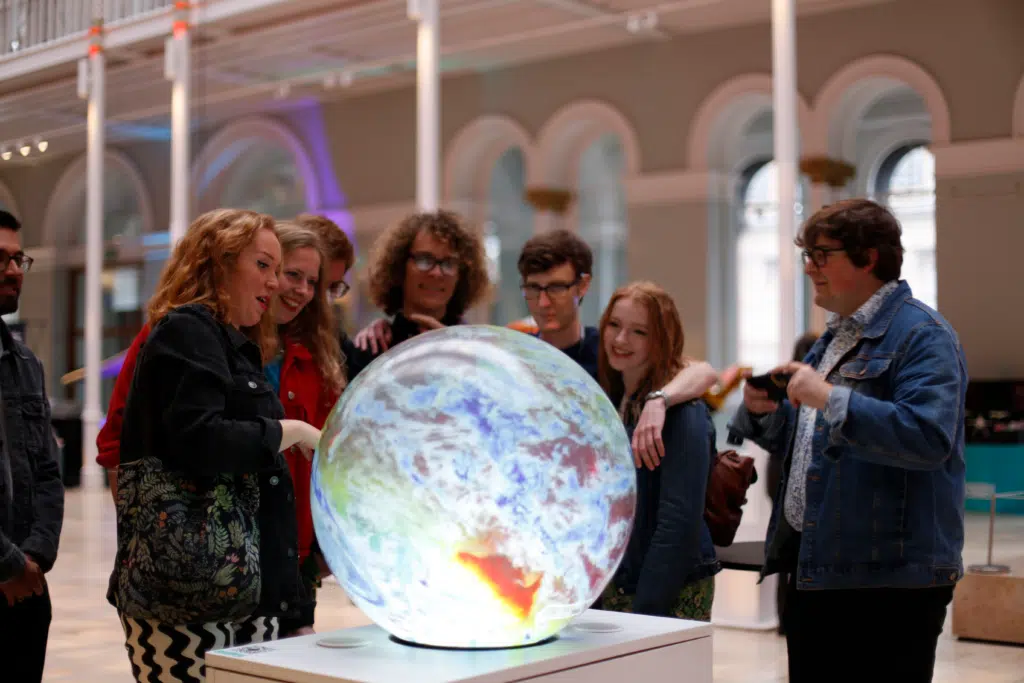Blog: How AI is Revolutionising the AV Industry


Artificial Intelligence was undoubtedly one of the hottest topics in technology and business throughout the last year. Though we’re still a long way from understanding the full potential of this incredible technology, its impact across numerous industries so far has been nothing short of transformative. The audio-visual industry is no exception, and it feels as though we’re only scratching the surface of what could be achieved when AI becomes fully integrated into the sector.
AI is poised to stir a revolution in the creative industries, largely as a result of its ability to provide intelligent solutions to complex problems, recognise patterns in vast amounts of data, and predict outcomes. These qualities enable AI to perform tasks that could previously only have been done by a human, but which AI can complete with greater efficiency and accuracy. Join us as we explore how AI is revolutionising the AV industry and how professionals can leverage its power to create captivating experiences.
AI’s influence was felt powerfully at this year’s Integrated Systems Europe, with experts and industry insiders discussing its potential in the AV space, both across the conference programme and among conversations on the show floor. By automating processes, enhancing user experiences, and freeing up human attention for other tasks, AI is well-positioned to become a pivotal force in the industry. The ability of AI to handle large volumes of data intelligently and efficiently empowers AV professionals to create captivating, immersive experiences that are perfectly tailored to their audience.

Discussed were potential threats and challenges posed by AI, such as protecting audio and visual systems from AI-powered threats, concerns over bias in automated systems and how to determine ownership of a piece of content where AI is involved. However, there were plenty of enthusiastic conversations around the positive potential benefits of AI, such as: how AI could drive intuitive and personalised smart home systems; the exciting outcomes of the meeting of generative AI and spatial computing; the application of AI in augmented reality/virtual reality technology; how AI will improve the efficiency of producing high-quality audio and video content; and the democratisation of content creation. This suggests that the industry views the seismic benefits of utilising AI in AV as outweighing the threats, while being mindful of potential pitfalls as we embark upon this new and exciting chapter in AV technology.
One area where AI is making significant inroads is in intelligent automation. The ability of AI to understand user preferences, learn daily routines, and proactively adjust settings is leading to the development of AI-driven smart home systems. These systems offer increased automation, improved energy management, and a more intuitive and user-friendly experience. Similar systems can be applied to the world of live events, enabling automated presenter tracking embedded in video cameras, automated adjustments to lighting and audio to reflect changing conditions, and facial recognition capabilities to personalise a range of services, among many other potential features.
The power of AI lies not only in its ability to automate systems by handling greater volumes of detailed and specific information quickly, but also in creating unprecedented levels of personalisation. This is a benefit that could be leveraged across a wide range of industries, but will perhaps be most impactful in the world of visitor attractions and museums. AI has the potential to tailor an experience to individual guests, based on their preferences and their interests, which opens the door to completely unique and immersive experiences for each visitor. Stimulating and unique experiences for each visit could encourage visitors to return time and time again. AI is also developing an incredible capacity to understand and manipulate language and human intent, and this can be leveraged to bring learning to life, to even bring back historical figures for a lively and realistic conversation.

Among other emerging applications of AI that have the AV industry talking, the development of virtual and augmented reality (VR/AR) systems are being impacted enormously by the involvement of AI. These systems heavily rely on AI to process sensor data, understand the environment, and create realistic and immersive experiences for users. Natural language processing and machine learning algorithms enhance the realism of virtual worlds, making characters more believable. Companies have invested heavily in developing their own VR/AR technology, leveraging the power of AI to push the boundaries of immersive experiences.
The convergence of generative AI and spatial computing is opening up entirely new digital interactions and experiences. XR hardware advancements, such as those demonstrated in HTC’s Vive XR Elite, Meta Quest 3, and Apple’s Vision Pro, enable spatial computing devices that blend physical environments with virtual content. AI assists AV technicians in creating intelligent lighting systems and automated sound mixing for fully immersive experiences, enhancing the overall impact of spatial computing.
Technical potential aside, AI is poised to have a transformative impact on the range and depth of content creation in the future, as the creation of content becomes more democratised. The power of creation will no longer lie in the hands of a select few with the technical know-how, but will be accessible to individuals around the world with varying levels of technical expertise, and with a diverse range of backgrounds. This presents the opportunity for more inclusive innovation, and the encouragement of more diverse perspectives and ideas that will transform and energise digital artistry.
From intelligent automation and AI-generated content to VR/AR systems and spatial computing, AI’s transformative power is reshaping what is possible in the AV space. With AI in the mix, the future is bright with more exciting and immersive experiences, perfectly tailored to the audience. By navigating its challenges and embracing its potential, professionals can position themselves as leaders in this rapidly evolving industry.
Subscribe to our newsletter and follow us for more insight into the changing landscape of the immersive audio-visual industry.